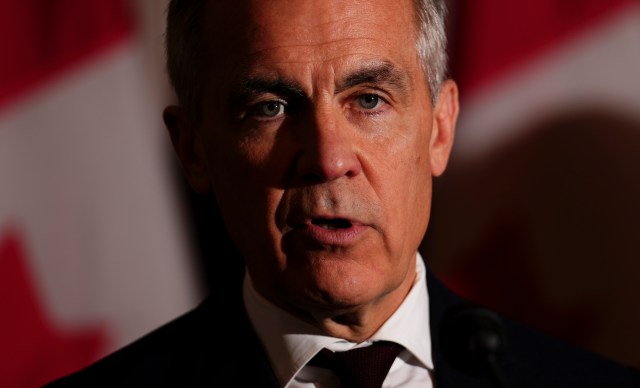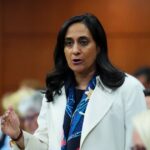The atmosphere in Chateau Montebello, nestled alongside Quebec’s Ottawa River, carries an unmistakable tension this morning. World leaders arrived with grim faces, their diplomatic smiles betraying the weight of multiple crises converging at once.
“We’re trying to put out several fires simultaneously,” a senior European diplomat confided to me as we walked through the historic wooden resort. “The Middle East situation alone would consume an entire summit, but now we have tariff threats hanging over everything else.”
The G7 Summit kicks off under extraordinary pressure. Canadian Prime Minister Justin Trudeau’s original agenda—focused on artificial intelligence governance and climate finance—has been largely overshadowed by urgent deliberations on Gaza and Lebanon, where civilian casualties mount daily. The Canadian host had hoped for a showcase of global cooperation, but instead finds himself mediating increasingly fractious positions on Israel’s military operations.
I witnessed German Chancellor Olaf Scholz arrive early for a sideline meeting with U.S. President Biden, reportedly to discuss a coordinated approach to the proposed ceasefire framework. Germany has gradually shifted its stance in recent weeks, with Berlin increasingly vocal about humanitarian concerns while maintaining its support for Israel’s security needs.
“The situation requires immediate de-escalation,” Scholz told reporters yesterday. “We cannot allow regional stability to deteriorate further.” His comments reflect growing European frustration with the expanding conflict, now threatening to engulf Lebanon more comprehensively.
According to United Nations data, over 37,000 Palestinians have been killed in Gaza since October, with infrastructure devastation reaching unprecedented levels. Meanwhile, cross-border exchanges between Hezbollah and Israeli forces have displaced tens of thousands in northern Israel and southern Lebanon, creating what UNHCR calls “a secondary humanitarian crisis” alongside Gaza’s collapse.
French President Emmanuel Macron arrived with his own diplomatic initiative, having spoken with Iranian leadership last week about restraining Hezbollah. A French foreign ministry source told me they’ve prepared a detailed containment proposal, though its reception among other G7 members remains uncertain.
“We’re seeing the potential for a wider regional war increasing daily,” said Karim Emile Bitar, Director of the Institute for International and Strategic Relations in Paris, when I called him yesterday. “The G7 needs to move beyond statements of concern toward actionable pressure points that all parties will respond to.”
But looming over the Middle East discussions is another crisis entirely—one potentially threatening the economic foundation of the G7 itself. President Biden faces uncomfortable questions about Donald Trump’s promised 10-20% universal tariff proposal and its implications for the rules-based trading system these nations have championed for decades.
During yesterday’s pre-summit briefing, Treasury Secretary Janet Yellen attempted to reassure partners, stating: “The United States remains committed to open markets and fair trade.” Yet several finance ministers privately expressed skepticism about such assurances given the political realities in Washington.
Japan’s delegation appears particularly concerned. With its export-dependent economy, Tokyo stands to lose billions if the tariff threats materialize. Prime Minister Fumio Kishida has prepared detailed economic impact assessments to present during the trade discussions, according to his economic advisor who requested anonymity.
“We respect American democratic processes,” the advisor told me, “but we also need to protect our economic interests and the international trading system we’ve all built together.”
Walking through the security perimeter this morning, I observed Canadian farmers displaying signs protesting potential agricultural market disruptions. Their anxiety mirrors broader economic concerns that have local communities surrounding G7 summits increasingly questioning the benefits of globalization championed by these leaders.
According to World Trade Organization figures, a 20% universal tariff could reduce global trade volumes by up to 9% over two years, potentially triggering a worldwide recession. The International Monetary Fund has warned such measures would disproportionately harm developing economies dependent on export markets.
Italian Prime Minister Giorgia Meloni arrives with perhaps the most complicated position. Her right-wing government maintains friendly relations with Trump while remaining committed to European unity. “Italy will advocate for pragmatic solutions that protect our manufacturing base while preserving international cooperation,” her spokesperson stated.
European Commission President Ursula von der Leyen faces her own challenges, having just announced a €40 billion support package for Ukraine that requires continued transatlantic solidarity. She’s expected to present the EU’s defensive economic measures should universal tariffs materialize.
Beyond the headline crises, climate commitments face renewed scrutiny. The United Kingdom’s delegation arrives with sobering data from the Met Office showing accelerating Arctic ice melt. Canadian Environment Minister Steven Guilbeault has prepared presentations on climate finance models that could survive potential U.S. withdrawal from previous agreements.
“We’re planning for multiple scenarios,” Guilbeault admitted during yesterday’s environmental ministers’ preparatory session.
As motorcades continue arriving at Chateau Montebello, security personnel outnumber the small town’s residents by nearly five to one. Local business owner Marie Tremblay, whose cafe sits just outside the exclusion zone, offered perhaps the most pointed observation: “They come, they talk, they leave. But our problems—and the world’s—seem to keep getting worse.”
The summit’s outcomes remain uncertain, but one thing is clear: the unified front G7 nations traditionally present appears increasingly fragile against the fractured global landscape of 2024. Whether these leaders can bridge their differences on Middle East policy while simultaneously safeguarding their economic relationships may define international relations for years to come.






